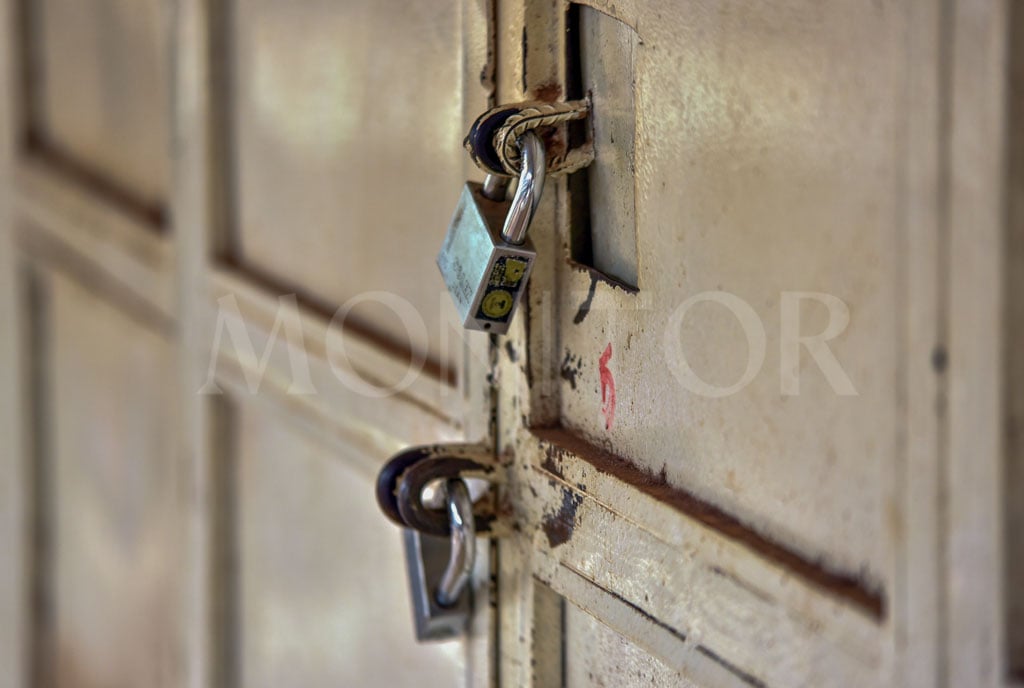Prime
Strike divides traders

KACITA spokesperson Issa Ssekitto addresses journalists in Kampala on July 30, 2024. PHOTO/MICHAEL KAKUMIRIZI
What you need to know:
- Some traders are opposed to the shop shutdown strikes.
Two shades of confusion rocked traders operating in Kampala’s Central Business District (CBD) yesterday, as some business owners closed their shops, while others remained open, creating uncertainty about the strike’s effectiveness and support.
The Kampala Capital City Traders Association (Kacita) had instructed all traders to close their shops yesterday, after President Museveni, who was scheduled to meet with them on July 31, called off the meeting due to renovations at Kololo Independence Grounds, the planned venue.

KACITA spokesperson Issa Ssekitto addresses journalists in Kampala on July 30, 2024. PHOTO/MICHAEL KAKUMIRIZI
Accusing the President of disrespect, as this was the second postponement, traders demanded a meeting as soon as possible.
However, a survey by Monitor in the city yesterday morning revealed a mixed situation.
While most arcades such as Kikuubo, Qualicel Bus Terminal, Nakasero Arcade, Totala Business Centre, and Mukwano Arcade, were completely closed, others like Annet Plaza, Pioneer View, Magoba Shopping Mall, Nalubwama, and Jubilee House remained open.
Some arcades, including Gaza Land and Ham Shopping Centre, had a mix of closed and operating shops within the same buildings.
Major markets like Nakasero and Owino, as well as shops selling vehicle and motorcycle spare parts in Kiseka Market, also remained open.
Meanwhile, some traders were stranded after finding the arcades they operated from locked, while retailers who travelled from distant places like Mbarara were greeted with padlocked shops.
Sarah Adongo, a retail shop owner from Sonde, Namugongo in Wakiso District, was left stranded after finding all shops in Kikuubo closed.
She typically buys soft care products, dresses, cotton wool, and mother’s kits from Kikuubo at lower prices to sell at a markup back home.
“What I wanted to buy was inside the shops that are closed, not the ones that are open. If Kikuubo closes, we suffer the most, since it literally has all the items we need. I have nothing to do but to go back home. I will come another day,” Ms Adongo said.
Similarly, Namugerwa, a retailer from Mbarara, was shocked to find major shops selling clothes closed.
“I have already wasted my transport, so I cannot go back without anything. I have to camp at my son’s residence in Kampala until shops are open. I was not aware of the traders’ strike, otherwise, I wouldn’t have wasted my money and time,” Ms Namugerwa said.
Anne Kasowale, a trader selling clothes at Skylight Shopping Arcade, said she came to work as usual but found the shops closed.
“I heard Kacita people talking about the strike, but I did not know they were serious. I was shocked to find shops closed this morning,” Ms Kasowale said.

Businesspeople are seen outside during a shop shutdown strike by traders in Kampala on July 31, 2024. PHOTO/MICHEAL KAKUMRIZI
David Kalemeera, a shop attendant in Kikuubo, said they were following orders from their bosses under Kacita, who instructed them to close their shops until they order them otherwise.
“As traders, EFRIS should be abolished and only apply to those operating factories. It does not help us at all given the other huge taxes we are paying,” Mr Kalemeera said.
Solomon Kisakye, another trader in Kikuubo, asked the government to first educate traders about the EFRIS system because the majority do not know how it operates and how it affects them.
“President Museveni only listens to manufacturers. He does not listen to the plea of local traders, who also pay taxes to this government. This must change,” Kisakye said.
Traders who opened defend their stand
Many traders dealing mainly in hardware, spare parts, and food were seen working.
“We want to close, but we have loans. This system [EFRIS] being implemented by URA is unfriendly to everyone,” Mr Ambrose Kiwanuka, a shop operator at Nakasero Market dealing in paint, said.
He added: “Here, if you don’t work for a week, the bank will call you. Clients also give us their money in advance, meaning such clients don’t have specific days when they will come. That’s why I am here.”
“We are equally affected by the taxes imposed by URA. I am contemplating closing the [physical] shop and start operating online, it’s the way to go,” he said.
At Kiseka Market, some shops were open, and some traders were seen inside their arcades, although the main entrance remained closed.
“We have no hope in this country; everything is in prayer. We don’t know what [will happen] next if it goes on like this. I have plans to shift my shop to Kawempe [a Kampala suburb]. Here, we are giving more in taxes than what we are earning. Now EFRIS, can you explain it?” Mr Mpanga Wasswa, who deals in car spare parts at Kiseka Market, said.
He added: “I have tried to research how EFRIS works, but I still cannot understand it. They call it a system, and others call it a machine. So, what is what?”
There was heavy deployment of armed uniformed and plain-clothed security personnel at Kiseka Market.
“Can anyone buy anything with such deployment? The security [deployment] is scaring away potential buyers. The police need to understand what we call for peaceful protest.
When they talk about demonstrating, they hurry to Kiseka to deploy,” said another shop operator dealing in motorcycle spare parts, who only identified himself as a team leader.

Security officers are seen patrolling downtown Kampala on July 31, 2024, during a shop shutdown strike by city traders protesting against EFRIS, taxes and foreign investors engaged in petty businesses. PHOTO/MICHAEL KAKUMIRIZI
At Kisenyi, Ms Hanifa Kibede, who deals in hardware, said on a good day, she pockets close to shs300,000.
“When customers hear that we have closed our shops, they don’t show up. I am just wasting my yaka [electric power], water, and money on eating. I have spent Shs4,000 on just breakfast yet I am not working,” Ms Kibede said.
She added: “If my clients need me, they will call, and I will come, open, and deliver like we did during the Covid-19 pandemic. The bad thing with our government is that they think they are the only wise people in this country. They don’t want to listen; they just dictate. I want those big people who are forcing this system on us to try and open up shops downtown. Let’s see if they can operate for a week with all these taxes.”
Leaders speak out
Kacita chairperson Thaddeus Musoke Nagenda acknowledged the division among traders and said the leadership would convene to decide whether to continue the strike.
He also said that the Ministry of Trade had requested them to call off the strike and wait for a rescheduled meeting with President Museveni. He said they would determine the way forward.
“People have different ideas about this strike. We need to meet to harmonise this position about the strike. The meeting will decide whether we maintain the strike or we call it off,” Mr Musoke said.
However, the chairperson of United Arcaders Entrepreneurs Association (UATEA), Mr Edward Ntaale, said whereas Kacita announced their strike yesterday, theirs will start today (August 1).
He said they could not demonstrate on the day their kingdom [Buganda] was celebrating their king’s (Kabaka’s) 31st coronation.
“We shall officially start our strike today. All we want is the President to give us answers regarding our pleas. He can pass the information on radio and television like he usually does,” Mr Ntaale said.




